— The featured artist of the 88th issue of Living the Photo Artistic Life magazine is AWAKE artist Helen McLeod of New Zealand. It’s wonderful to be able to interview Helen here on Quill and Camera . . .
Q: “What got you started in digital photo artistry?”
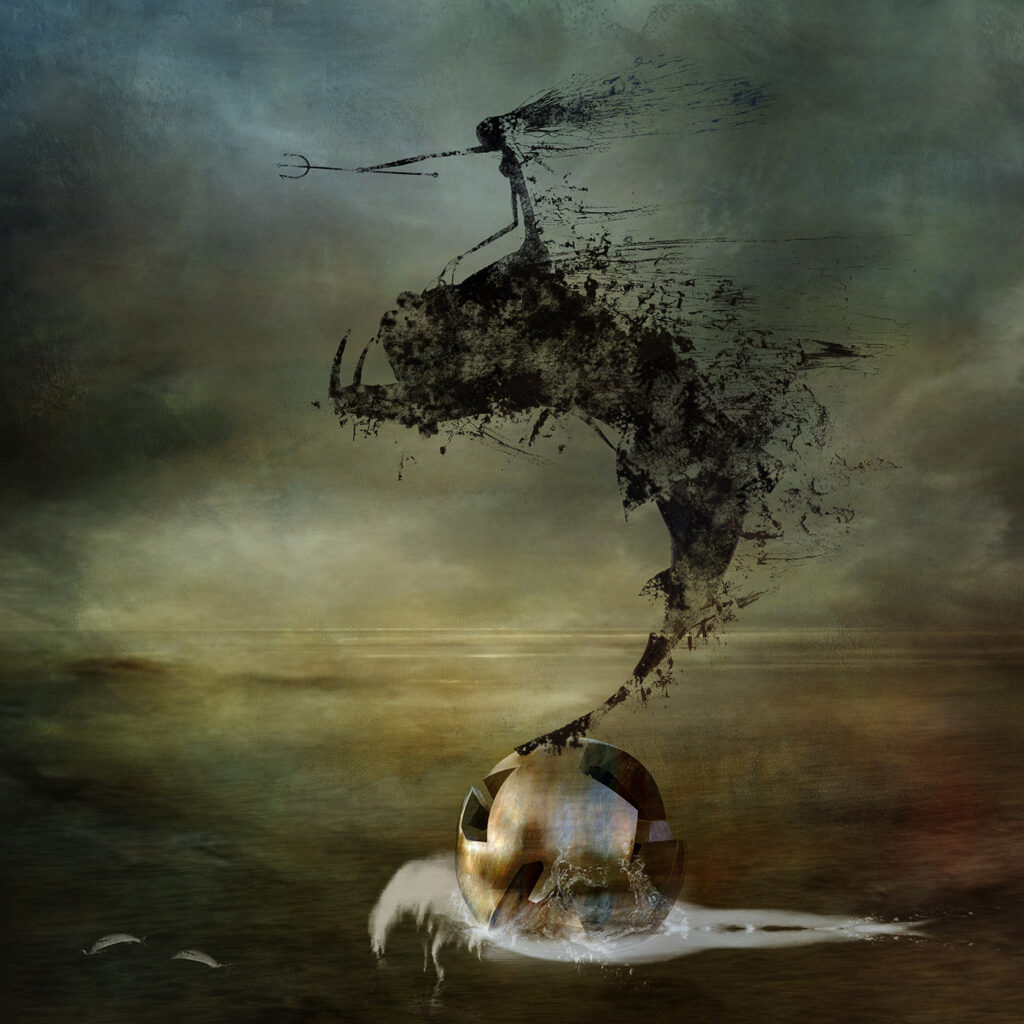
I first encountered this form of photography while studying toward a diploma in digital photography. During this time one of the compulsory papers was an Auteur paper — one in which we were required to study and dissect the works of various photographers and their styles. The assignment asked us to emulate the photographers, which led us to better understand different techniques and perspectives. During my research I discovered the artistry of Jerry Uelsman, Maggie Taylor, Brooke Shaden, and Julieanne Kost (amongst others). The work of these inspirational photographers resonated with me — impacted me strongly — and left a lasting impression.
Until this time I was more of a “purist” photographer with a passion for landscape photography (which I still really enjoy, though for different reasons). My photo artistic work has come feel quite quite different from the work produced by other artists. At least that is how I perceive it. Might be the rebellious streak in my personality.
Many years ago, I was told that photography was an easy, soft expression of art or creativity — after all, you just point your camera at a scene and push the shutter button, right? What else is required?
But I didn’t see it that way.
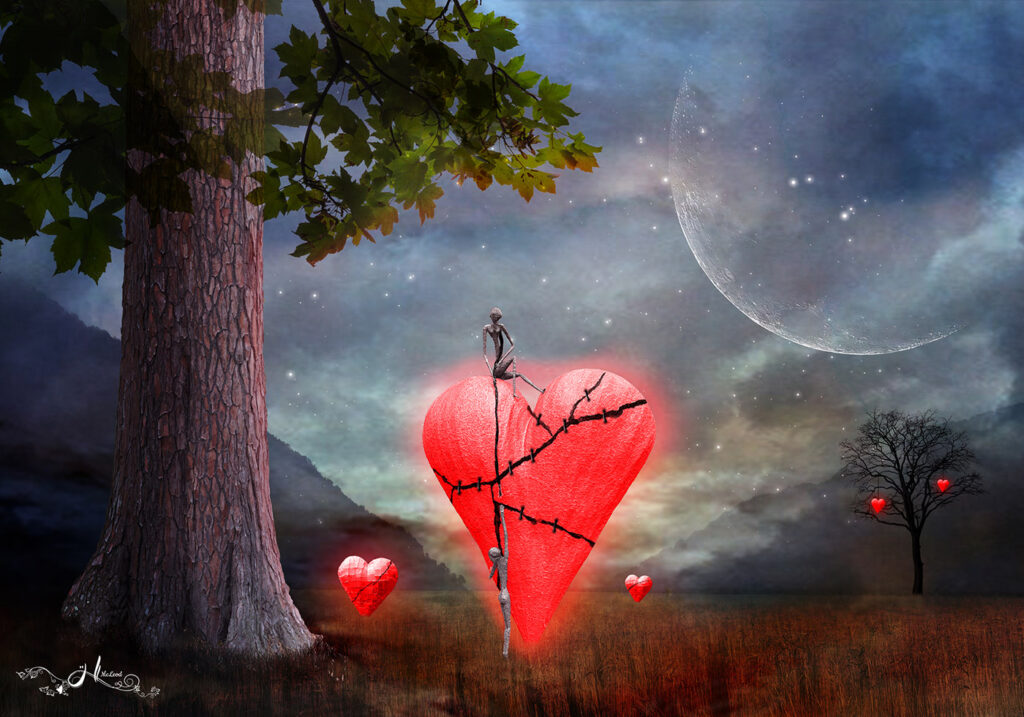
Although I found it easy to apply a different approach to my landscape photography, I suspected that there was more to this . . . or that there could be — something that conventional landscape photography wasn’t fulfilling.
This got me thinking. And I decided that there must be more to photography than what came down to more or less a point-and-shoot approach. Hence my decision to create what felt to me to be more meaningful images — those that expressed not just what was already there, but how I felt about it.
This decision matched up perfectly with the more artistic world I had discovered through my study of the above-mentioned artists. That was the internal spark.
For the majority of my life, my photography was quite technical and very black and white in terms of what it permitted and what it didn’t. And for me this stifled any form of real creativity. Upon reflection, I see that I was restless and was open to some form of creative outlet.
Photo artistry became that outlet.
Q: “Where do you think you get your best creative ideas?”
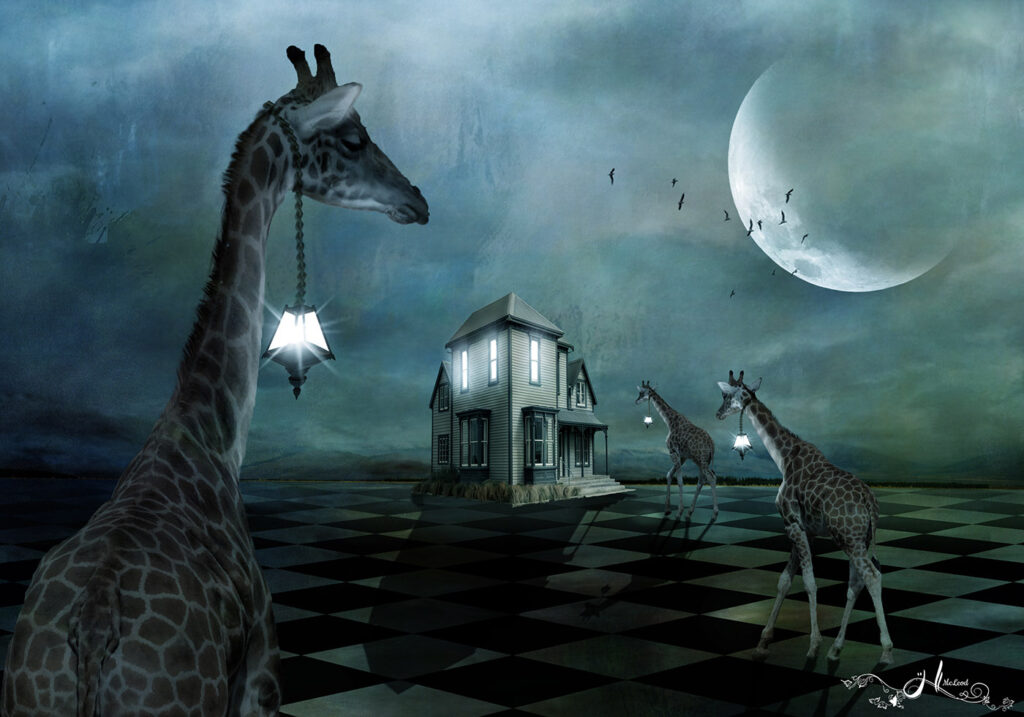
My mind is always active and always has been. I recognize that I am open to opportunities that arise and tend to grab them without really thinking about my decision for too long. Being a positive person, and always expecting great things, I feel I have seized countless opportunities throughout my journey — opportunities that I suspect the majority of people I have encountered either wouldn’t recognize or would shy away from.
I have tried different forms of meditation, though sadly these did not suit me. I now find that running through my local forest allows me to let my mind wander best. Thoughts come and go as I run (just as in meditation), and on many, many occasions those thoughts have led to bursts of inspiration and creativity.
I also sleep with a visual diary next to my bed. Sleep is another time in which inspiration abounds. Knowing that I am not likely to recall my dreams or thoughts for long upon waking, I jot words or draw really terrible sketches that would mean nothing to anyone else, but help me remember whatever ideas arose through the night.
As I compile, manipulate, and assemble my images I am not rigid in my process, allowing my original concept or idea to develop, evolve, even manifest itself in an entirely different direction along the way.
Going in, I never truly know what the final image will look like, but always seem to know internally when it is complete.
Q: “What does living the photo artistic life mean to you?”
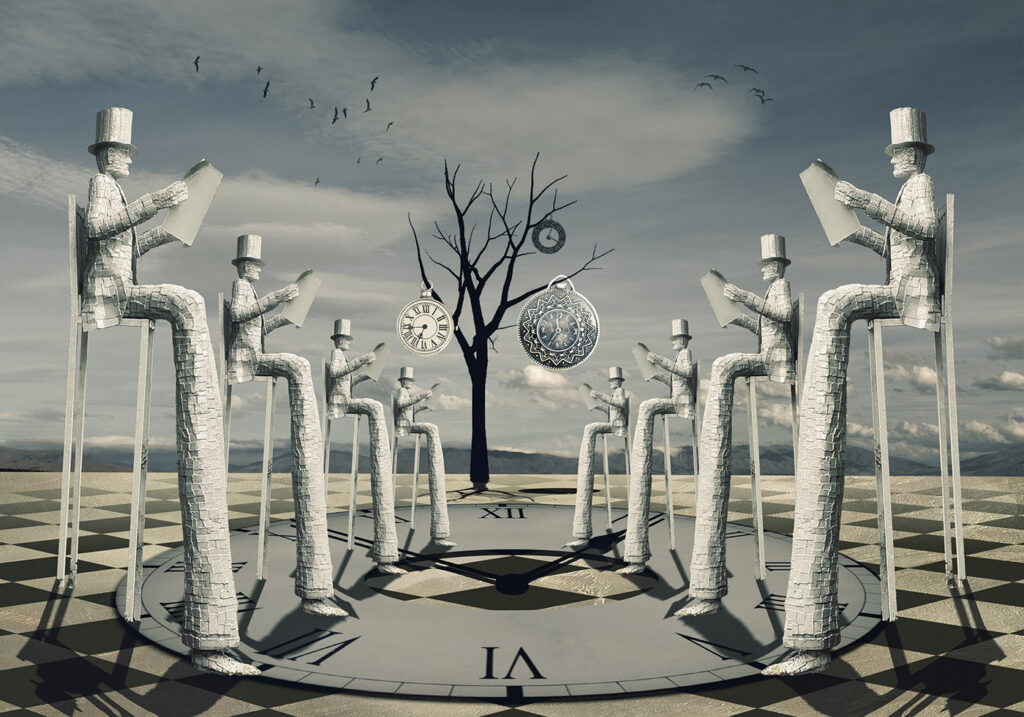
Until recently I felt stifled in my photography — not in my overall approach, but in the sense that it felt important that others liked it, appreciated it, understood it. It took some time for me to identify that this was what had me struggling with my photo artistry and the inspiration I required. Suddenly, I had an epiphany that I was creating for all the wrong reasons. I realized I had begun to create not for my own enjoyment or satisfaction, but for the acceptance of others. And when I saw that, I woke up.
Life is so short. You shouldn’t spend it worrying about what others think. You should enjoy it.
With a radical change in my attitude — and a lifestyle change to reflect this — my photo artistic life became so much freer. I was finally able to feel content, truly happy with my work, and more inspired in every way.
Living a photo artistic life is now my number one priority in terms of my creative expression. I still have a strong passion for landscape photography, but mostly now because it enables me to hide away with my camera in remote areas for extended periods of time, which I suppose is another form of meditation, clearing my mind and allowing me to open myself to further opportunities and inspiration.
Q: “What is your next step as an artist?”
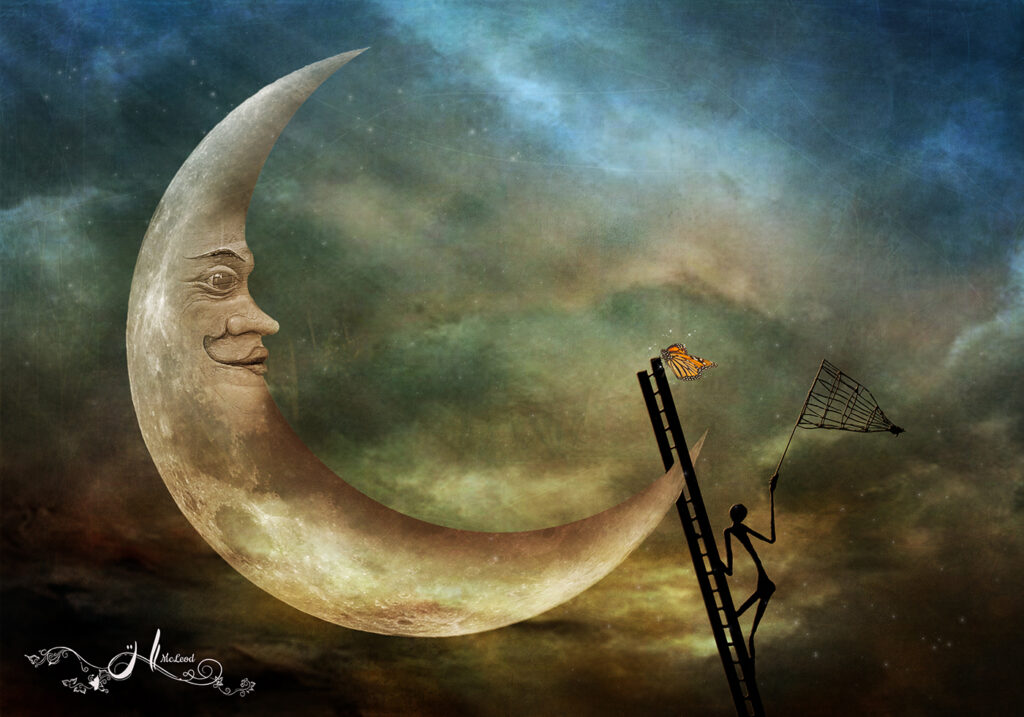
I wish to explore the concept of photographic artistry further, challenging the perception of photography of others along the way. I want to try to push my photographic artistic boundaries further too, but at this stage am not entirely sure how to achieve this. That’s what I have to discover . . .
As a photographic educator, educating others to appreciate and love creative photography is important to me. I now think the time has come to include the more zen-like aspect of photography in my teaching. It is something I discovered late in my photographic journey, and I feel I have come to apply it to all areas of my life. I would have benefited greatly, earlier in my career, had I known that above all else it would be this that would lead to a happy, contented, fulfilling life. Sharing those insights is important to me.
Q: “Any tips for aspiring digital artists?”
There are a number of things I have learned the hard way during my photographic journey which I wish someone had pointed out to me early on. Among them would be these:
— Treat photography as a sport. Continually practice and experiment with your camera and with Photoshop. It truly is the only way to improve your skills.
— Ignore the opinions of others. If your image speaks to you on an emotional level, you are probably onto something, and it could be something amazing. The opinions of others are not important; you do not need the validation of anyone else to be happy with your work. We all see things differently as we have completely unique worldly experiences and artistic tastes.
— Create for yourself, no one else (unless you are commissioned to do so, and even then, try to leave details open and sufficiently vague so your creativity doesn’t suffer).
— Don’t panic if you find yourself struggling with inspiration. Relax and it will find you. Just be open to thoughts and opportunities that come your way.
— Don’t be so quick to delete images when reviewing your photos, even if you are unsure what to do with a particular image (which clearly caught your eye sufficiently for you to consider capturing it). There are times when we subconsciously know that a capture is important, even if we haven’t yet the skills to carry it where it needs to go. Your talents will develop, and as they do you might revisit the image at a later date and instantly know what to do with it.
— Design an area you love to work in. Surround yourself with interesting props, books, images, comfortable furniture, as well as your favourite music. You should have a space that is truly yours. Make your creative space one that you love being in and don’t like leaving. This too will help with inspiration.

